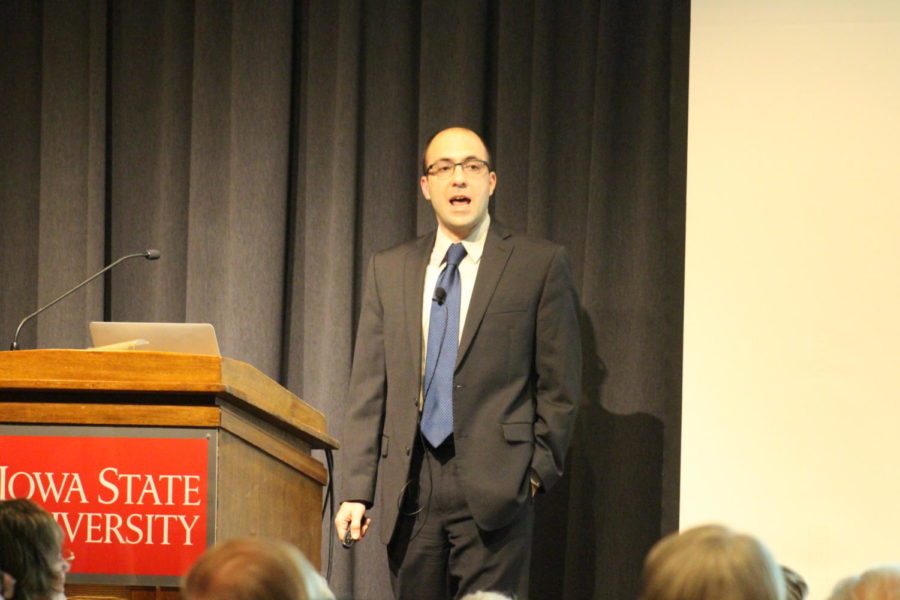Iowa State Professor works to make drones more dependable
March 12, 2019
What once was thought of as a technology of the future has become an interest to computer science assistant professor Borzoo Bonakdarpour.
Society today has a need for dependable systems. Creating these dependable systems is a challenge due to the inherent complexity of them.
“Dependability is a struggle we face everyday,” Bonakdarpour said.
Bonakdarpour said a distributed autonomous vehicle is one that is capable of sensing its environment and moving with little or no human input. Drones are one type of autonomous vehicles.
When discussing how drones work, Bonakdarpour said they run off of four propellers. Two propellors rotate clockwise while the other two rotate counter clockwise. The faster the propellers move cause the drone to lift into the air.
Drones have many applications in how they can be used, one of those applications being agriculture. In agriculture, drones can be used for inspecting crops as well as distributing pesticide.
Other applications drones are used in include search and rescue and patrolling. Drones are helpful in search and rescue missions because they are able to cover thousands of acres of land in rugged terrain delivering supplies. For patrolling, drones can provide asset protection as well as highway monitoring and border patrol.
Bonakdarpour said the FAA registered a total of 325,000 drones, and the pentagon is spending $2.9 million on drones.
Some challenges of drones include the inability to recognize things and the inability to avoid other drones. They also have limited energy, security, privacy and insurance.
Bonakdarpour’s main focus is on energy limits and security of drones. He said the energy limit of drones is about 20 minutes.
Bondakdarpour and his students are working to find a system where drones not only work together to distribute jobs, but to recharge and check each other while they are on a mission.
Bonakdarpour said he is continuing to research and study the systems the drones are working with to make the systems dependable to meet the demands of the people.







